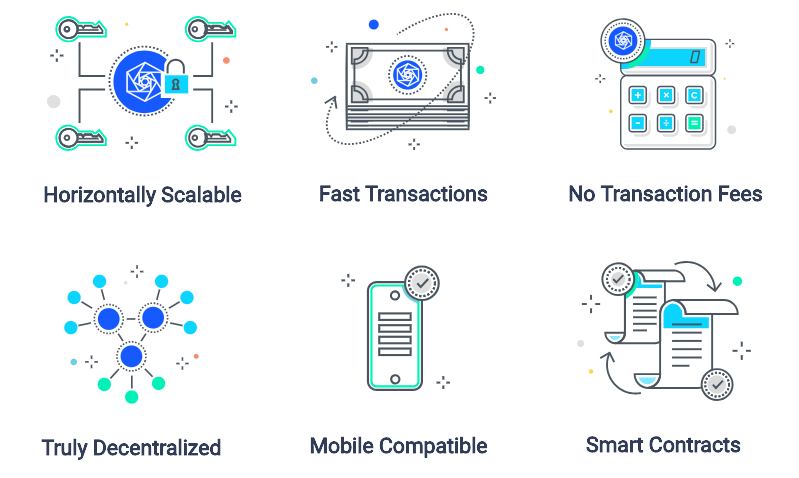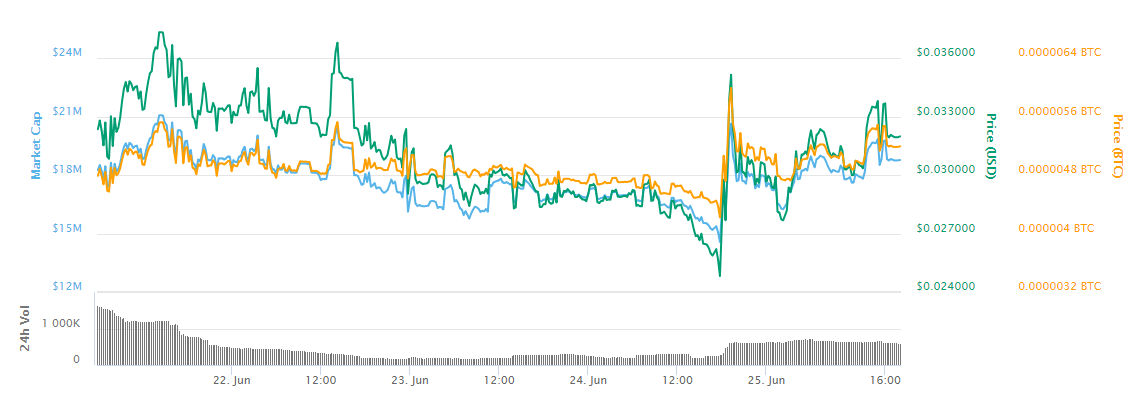Latest news about Bitcoin and all cryptocurrencies. Your daily crypto news habit.
As things currently stand, most of the big blockchain players such as Bitcoin and Ethereum are subject to a variety of systemic limitations which hamper mass adoption. One such issue is their scalability, which is poor primarily due to the consensus mechanisms they employ. In addition to this, currencies such as BTC make use of an underlying smart contract architecture that cannot be deployed for consumer grade applications.
Constellation can be viewed as a fault resistant, horizontally scalable, distributed operating system that has the capacity to implement full nodes as a mobile client. This helps foster a more secure framework that does not depend upon a single server.
The platform makes use of specialized service modules including:
- The ExtendedTrustChain (ETC) consensus model
- Proof-of-Meme consensus model
The system also deploys smart contracts as composable microservices which utilize the Java Virtual Machine (JVM). The end result is a blockchain platform that ensures high transaction throughput as well as provides customers with a foundation for creating consumer grade distributed applications.
Overview of the System
- Constellation employs a unique horizontal scaling approach which allows for an increase in transaction throughput as the number of network participants increases.
- The native protocol implements a blockchain architecture known as the Extended Trust Chain along with a peer-to-peer layer known as a ‘gossip protocol’.
- Constellation can be used seamlessly on mobile devices as well as laptops, PCs and tablets.
- The platform employs smart contracts through the use of a microservice architecture which allows highly available services to be chained and composed into distributed applications.
- The interface is quite visually aligned and can be used by customers with varying degrees of technical know-how.
Key Features
One of the main issues that plague the cryptoverse today is the scalability of today’s blockchain platforms. In this regard, Constellation is providing customers with a Horizontally Scalable Network (HSN) whose operational capacity lies in complete proportion to the number of customers using the platform at any given time.
Core offerings of the Constellation ecosystem
Additionally, owing to the partitioned consensus protocol that the system follows, the native blockchain is able to infinitely scale the number of transactions per second— thus allowing for rapid transactions. Constellation does not charge any transaction fees but instead employs a reputation-based incentive model which encourages customer participation.
The platform is truly decentralized since it makes use of a reputation-based delegate selection model that enables every network participant to contribute to the overall consensus of the system.
Comparison of TPS rates of various blockchain platforms
Lastly, Constellation is fully mobile-compatible, and owing to its lightweight architecture, all of its nodes can be used in conjunction with any remote device that deploys the platform. It is also worth mentioning that native nodes contained within the system can double-sign transactions and then broadcast them to the network.
How It All Works
As the name suggests, Constellation is comprised of a set of digital entities that govern various aspects of the platform. They include:
(i) Stars: They can be thought of as the building blocks of the platform. They interact directly with the network and allow users to instantiate a star node on a device through which transactions are then issued. Each Star contains a local chain that is composed of its history on the network. This local chain is used to enforce ordering and is identified by its public key.
Constellation’s roadmap
Star Clusters: These entities are collections of Stars which have elected to participate within the consensus mechanism. There is a limit to the number of Stars that can be contained within a cluster. Each time this limit is reached, a new Star Cluster is created and forms locality-sensitive hash blocks. These locality-sensitive hash blocks are then treated like ordinary transactions and hashed by entities known as Galaxies.
Galaxies: Galaxies can be thought of as validators within the ExtendedTrustChain. However, that is not their only role. Metadata about the contents of a proposed block, latency, and failure are sent with locality-sensitive hash blocks to Galaxies. Because they are validators, Galaxies provide a source of truth for removing invalid transactions and decide delegates in Star Clusters.
Black Holes: They are blocks of hashed, locality-sensitive data.
Team Details
Brendan Playford is the CEO of this venture. In addition to possessing over 11 years of experience in business management, he has been involved in the crypto sector as a miner, trader and data scientist. He holds an MSc in physics from University College London.
Wyatt Meldman-Floch is the CTO and core developer of the Constellation ecosystem. He has over 5 years of experience as a software engineer and data scientist, while also possessing a strong background in DApp development and machine learning. According to his LinkedIn bio, he studied physics and mathematics at the College of William and Mary and the University of St. Andrews.
Lastly, Benjamin Jorgensen is the COO of this project. He is primarily an angel investor/entrepreneur and is also responsible for the smooth running of Constellation.
Token Financials
Since DAG is a highly new cryptocurrency, predicting its future is quite difficult.
DAG token lifetime performance data (courtesy of CoinMarketCap)
As can be seen from the chart above, the value of DAG has remained relatively stable since its inception. While initially trading at $0.032 per token, the price of a single token now stands at $0.031.
As of June 25, DAG possesses a market cap of US$18.7 million as well as a total token supply of 4 billion. However, out of this figure, only 587.1 million tokens are currently in circulation.
Final Thoughts
With Constellation addressing many of the scalability limitations that are inherent in many blockchain projects today, it would not be surprising to see this venture do well by the end of this year.
If you would like to start investing in Constellation, DAG trading pairs are currently available on IDEX.
Disclaimer
The views and opinions expressed in this article are solely those of the authors and do not reflect the views of Bitcoin Insider. Every investment and trading move involves risk - this is especially true for cryptocurrencies given their volatility. We strongly advise our readers to conduct their own research when making a decision.




